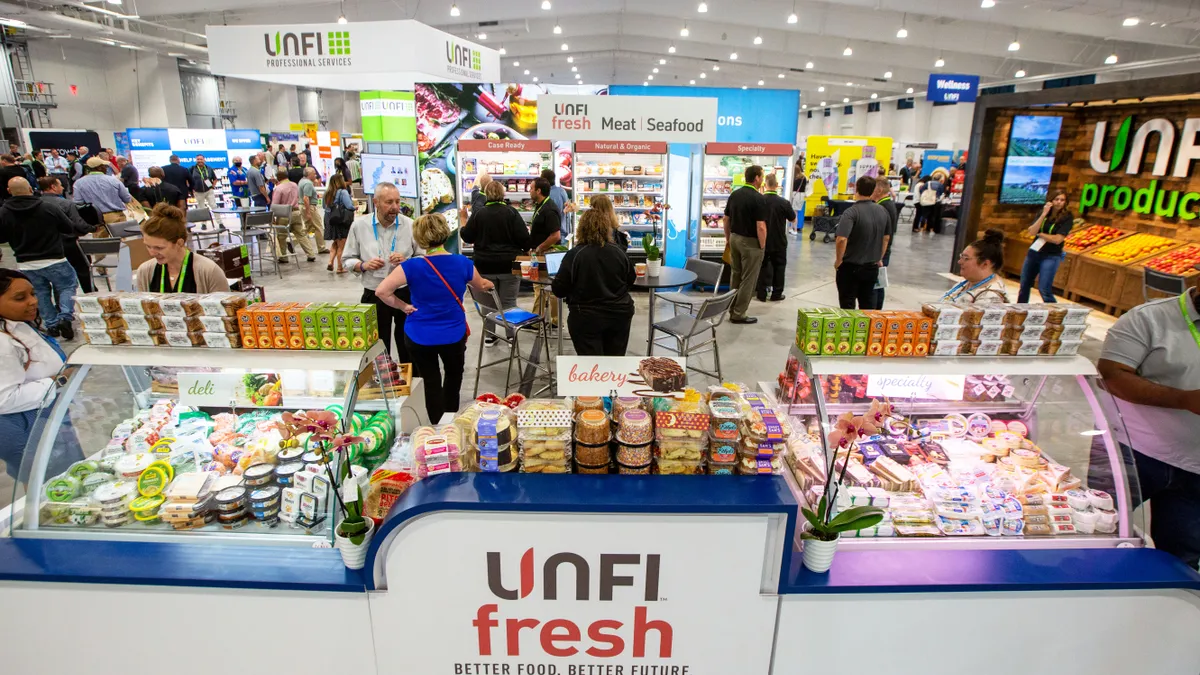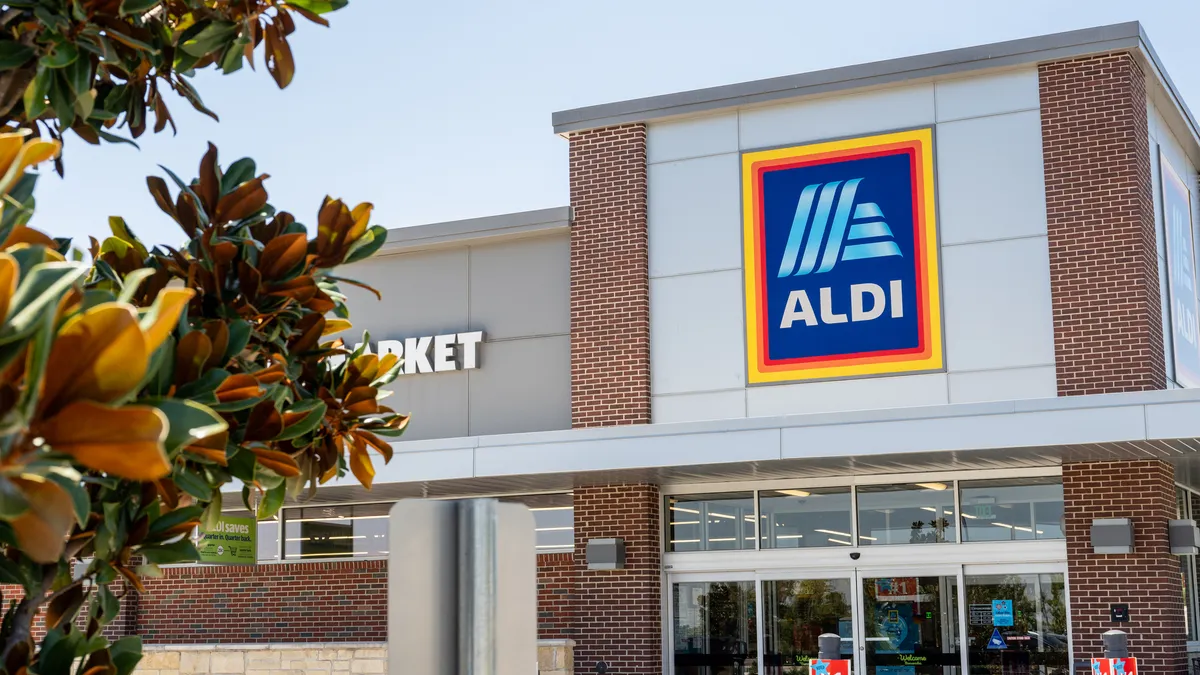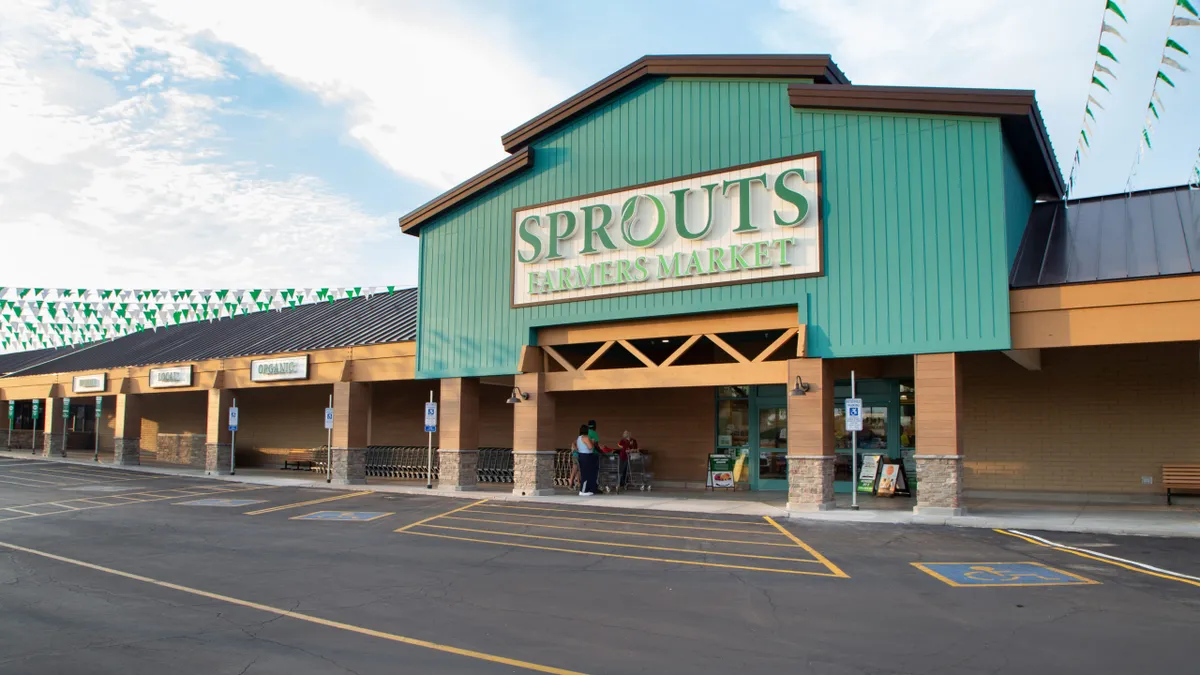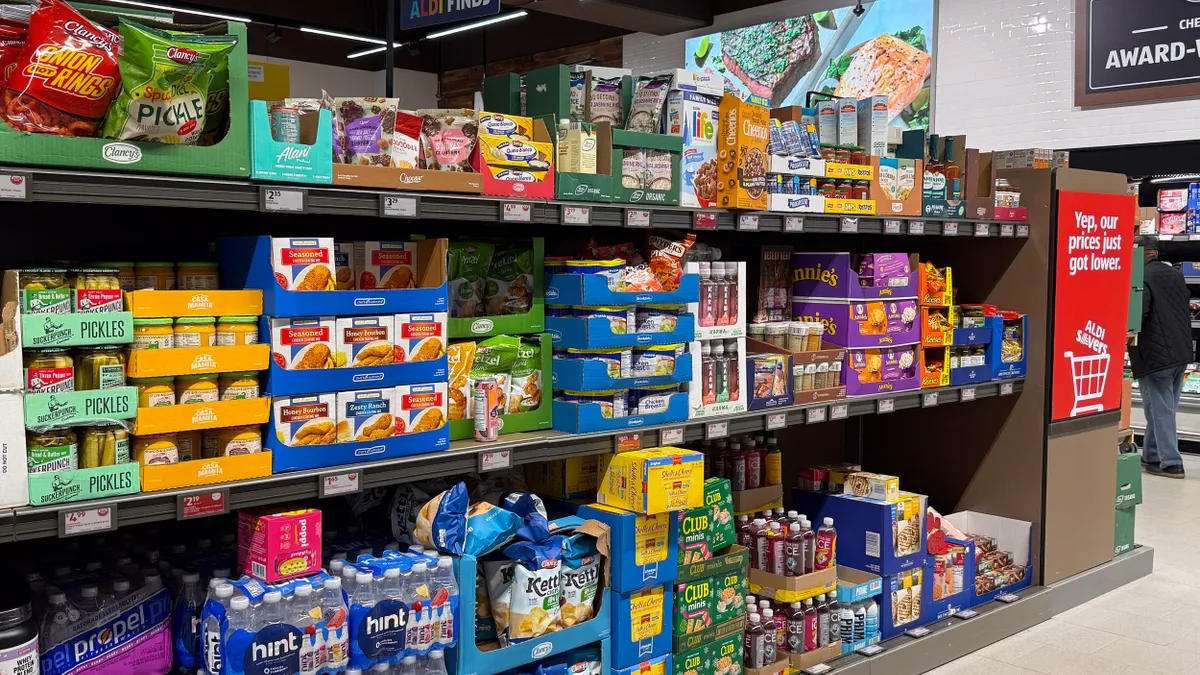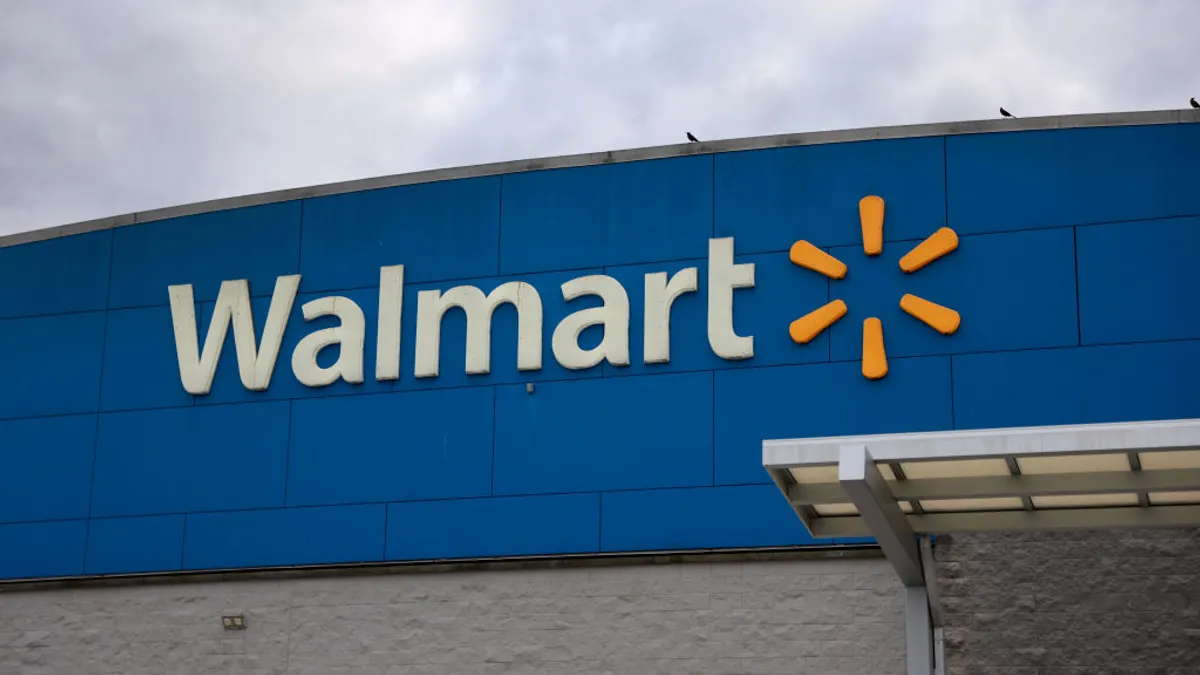As United Natural Foods, Inc. (UNFI) looks to reverse the sharp profitability skid that has overshadowed its past two quarters and decimated its stock price, it’s confronting multiple hurdles poised to severely test its ability to rejuvenate the business and restore investor confidence, industry analysts said.
The pressures squeezing the grocery distributor and wholesaler include rising competition in the consumables space from Walmart and Amazon, declining cost benefits stemming from inflation, lingering integration issues related to the company’s 2018 acquisition of Supervalu and weak sales in its retail division.
Those issues, combined with the costs UNFI is incurring as it brings on automation and other technologies to build efficiency and improve its ability to develop reliable financial forecasts, are putting a heavy drag on the company’s performance and prospects, at least over the near term, said Arun Sundaram, CFRA Research’s vice president of equity research.
“The company is facing several challenges at a time where it’s also investing in its business, and that’s exacerbating the profitability issues,” Sundaram said. “It’s a double-whammy.”
UNFI reported last Wednesday that its net income and earnings per diluted share both plummeted more than 89% during its fiscal third quarter. The company delivered the bad news on the back of a similarly debilitating performance during the prior quarter, when UNFI CEO Sandy Douglas shocked investors with the revelation that the company did not realize that benefits it had enjoyed in 2022 because of inflation had disappeared.
In delivering its latest results, UNFI lowered its expectations for its current fiscal year for the second quarter in a row. The company now expects net income of between $11 million and $41 million in fiscal 2023, down from the range of $90 million and $142 million it predicted in Q2. UNFI had earlier predicted it would have net income of between $247 million and $266 million during the fiscal year, which wraps up on July 29.
“Cutting guidance by this much for two consecutive quarters you typically don't see. And that’s concerning. So if there’s execution issues going forward, I think there’ll be more pressure on him to do something,” Sundaram said.
Investors hammered UNFI’s stock price after the company delivered its earnings and reduced guidance last week. The company’s shares tumbled 15% on Wednesday and continued to slide on Thursday and Friday to finish the week at $20.44, their lowest level since Jan. 13, 2021.
UNFI’s shares are down more than 65% since hitting a five-year high of $55.61 on Dec. 8, 2021, and have slid about 39% in the time since Douglas took over the chief executive’s job from former CEO Steven Spinner on Aug. 9, 2021.
Walmart looms large as UNFI works to regain strength
Walmart poses one of the biggest threats to UNFI going forward because of the mass merchant’s rapid acceleration as a grocery retailer — a trend that appears to be accelerating, Sundaram said. Walmart “is really taking market share from everybody,” including the independent natural food retailers UNFI serves, Sundaram said.
“That’s kind of understood in the market, but the impacts to UNFI’s earnings maybe weren't appreciated as much” until recently, said Sundaram.
Scott Mushkin, founder and CEO of R5 Capital, said Walmart and Amazon are both putting pressure on UNFI because they are automating their facilities, increasing productivity and strengthening their ability to move consumable goods rapidly.
“When you do that … now you want more volume, because your costs are lower,” Mushkin said. “To me, this just says Amazon and Walmart are going to be bringing pricing down in consumables, because that’s their business model. And it puts enormous pressure” on competitors like UNFI.
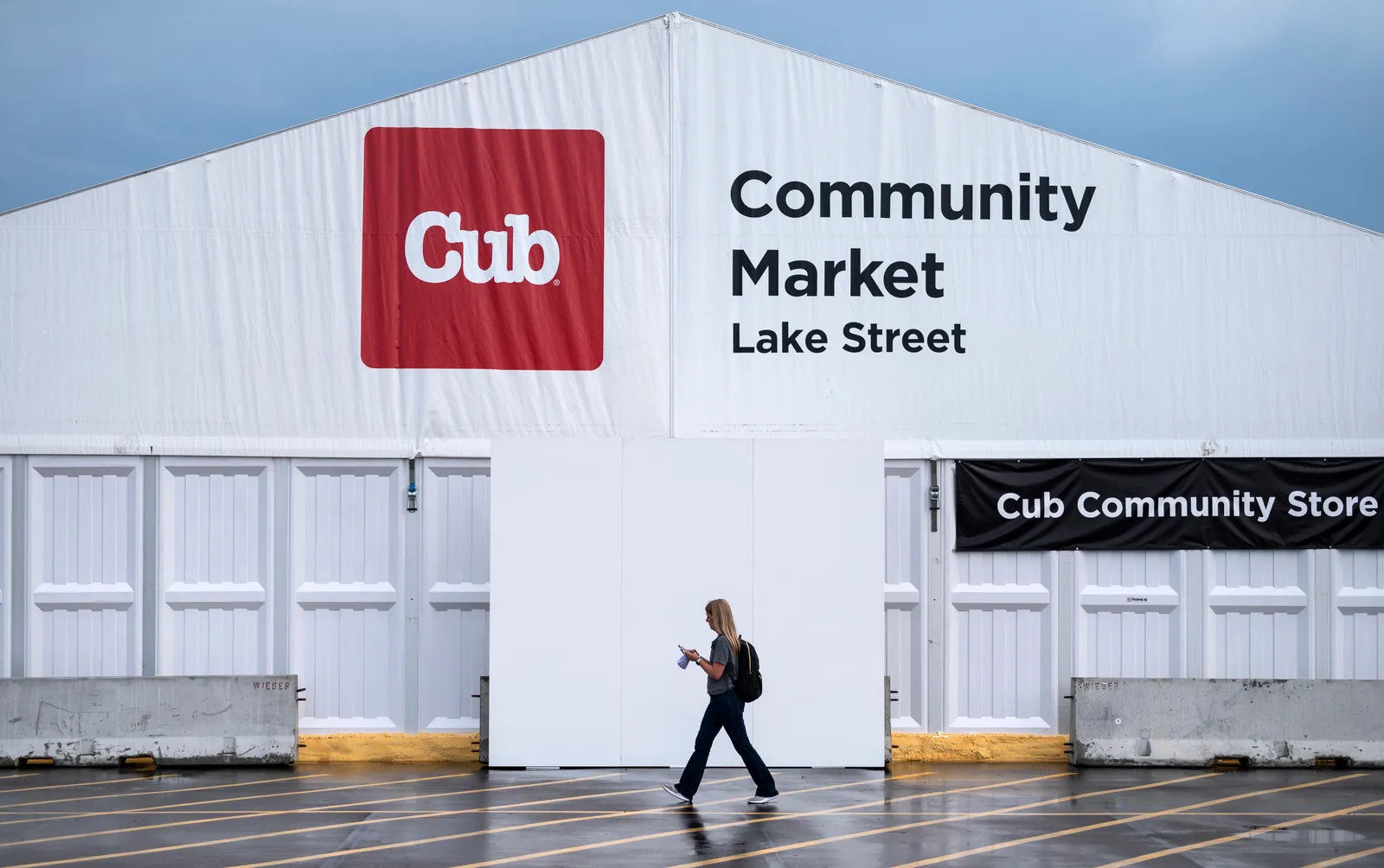
Mushkin noted that UNFI’s problems are being exacerbated by the weak performance in recent months of its retail segment, which includes the Cub Foods and Shoppers banners. UNFI reported last week that sales in the part of its business declined 0.7% during the third quarter, a development Mushkin said was especially noteworthy because other supermarket operators have posted substantially better results.
“That is incredibly poor performance. Even the poor-performing grocers are [doing] better than that. And so to see those sales, that’s an enormous red flag,” Mushkin said.
Sundaram said he thinks UNFI would have been better off unloading its grocery stores in 2022, when the COVID-19 sales surge was in its prime and pointed a spotlight on the supermarket business for investors.
“Certainly right now, you’re not seeing most food retailers post negative sales growth, so there’s some concern there,” Sundaram said. “I think what’s more concerning there other than just seeing negative sales growth is the fact that if the company did want to sell it today, they probably won’t get the same value for it as if they wanted to sell this business a year ago.”
Mushkin said he thinks that efforts to meld Supervalu, which included the supermarket business, into the rest of the company, has become a significant distraction for Douglas as he tries to put UNFI on stronger footing.
“I think it’s exposing the problems that existed in both UNFI and Supervalu before the pandemic and were evident as the companies merged,” Mushkin said. “It’s turned out to be much more complicated than I think Sandy understood when he first kind of took the reins, and fixing it is, I think, taking more time than he thought it would.”
Mushkin said that Douglas, who came to UNFI in 2021, is a key asset for the company owing to his decades of experience as CEO of office supply chain Staples and leading the North American operations of The Coca-Cola Company.
“I have clients that feel very strongly about his capabilities and him at being at the helm now,” he said.
But Mushkin said Douglas’ strong reputation doesn’t mean investors will be willing to give him a longer runway as he tries to reboot UNFI. “I think in the end, [the company has] got to get fixed and it's got to get fixed expeditiously.”
Correction: An earlier version of this story misstated the five-year high for UNFI’s stock price in December 2021.


